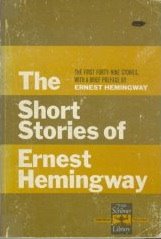 I think it's season 2 in LOST where John Locke hands "Henry Gale", who we later come to know as Ben, a copy of Dostoevsky's The Brothers Karamzov as a way to pass the time. Since that moment, I've been intensely interested in reading the book, especially sinced I skipped reading it even though it was assigned in one of my college classes. It's huge, 770 pages, printed small. Who can blame me?
I think it's season 2 in LOST where John Locke hands "Henry Gale", who we later come to know as Ben, a copy of Dostoevsky's The Brothers Karamzov as a way to pass the time. Since that moment, I've been intensely interested in reading the book, especially sinced I skipped reading it even though it was assigned in one of my college classes. It's huge, 770 pages, printed small. Who can blame me?After some fishing around wikipedia, I've found that The Brothers Karamazov has attracted some pretty famous fans, including Albert Einstein and Sigmund Freud (Freud was practically drooling over the overt Oedipal storylines). So it would seem that the book, though long, is quite worth it.
I'm going to put myself out there and separate for a minute from the likes of Einstein and Freud, and the LOST writers who choose to include the book in the show for some reason (I'll mention what I think about that in a sec), and, gasp, say that I didn't particularly enjoy this book. It was long, meandering, full of religious rants and philosophical raves. In the end, I found about 200 pages of it really interesting, and I don't think I'd be hardpressed to sit through the other 500+ again, unless I was keen on some sort of torture. And I think the only reason it's in the show is that it echoes both Locke's and Ben's feelings of anger and hatred towards their respective fathers.
The book, if you care, is an intricate story that I'm too lazy to lay out in detail here. There are a couple of twisted love triangles, a family's very strained relationship, and three (or four, if you include the scary Smerdyakov) sons who all in some way want to kill their father. At the core of the book is the murder of the father and subsequent trial of his son, Dmitri Karamazov. I won't say whether he's guilty or not, so as not to spoil the surprise for you, but if you read it, this might well be the only thing that keeps you going. It was for me...
Themes abound in this novel, but how could they not. It's 700+ pages! Among the several philosophical inquiries into religion, ethics, and sacrifice, I think one or two discussions would have sufficed. Still, maybe this is a critique of someone who can't appreciate a long, sprawling novel, something with intricacies and details and sprawling discussion. So be it. I want my MTV.
The Karamazovs seem to be a microcosm of the world. It's fun to see them ruin themselves and strike back for salvation, but not if you like your time. There are so many cool covers for this one, too bad what's in between isn't enough to keep that interest going.









